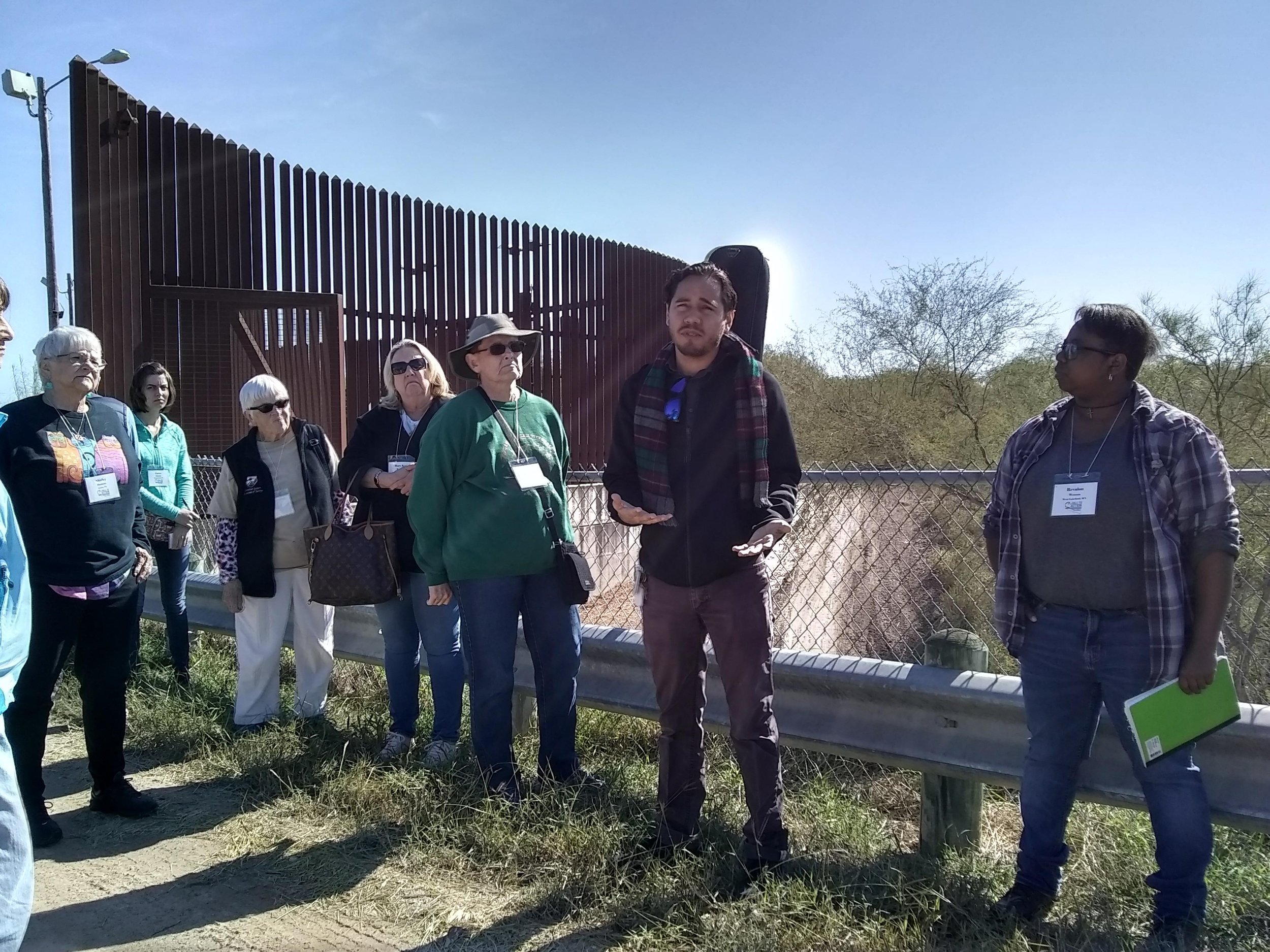A Stranger, and You Welcomed Me
June 20 marks World Refugee Day, established by the United Nations to recognize and celebrate refugees across the world. Call To Action’s Immigration WorkGroup releases the following statement reflecting on the history of immigration in the United States—and the current crises the U.S. faces in the 21st century.
Migration has long been part of the human experience—individuals and whole communities leave intolerable and desperate situations seeking, in another place, an opportunity to live a life of safety and dignity for themselves and their families. Migration is caused by disruption, which, many times, leads to a disruption in society at the end of the journey. This is human history, repeated millennia after millennia across the world. Hebrew scriptures are filled with admonitions to Israel of its responsibilities toward those strangers among them. These responsibilities are presented as equal to those of “widows and orphans,” the most vulnerable people of Israel. Call To Action's Immigration WorkGroup believes this directive holds particular importance in our 21st-century American society, including for those who are followers of Christ and people of the Gospel.
From its foundation, our nation has two minds about immigration. First, we present ourselves to the world as a beacon of hope, a land of opportunity founded on the lofty aims written down in our foundational documents. Lady Liberty with her torch held high tells us, and the world, that our nation is not one of blood and soil but one open to anyone “yearning to breathe free.” Civic lessons taught us that the “huddled masses,” the “wretched refuse,” and the “tempest-tost” were not only welcomed but sought out so that our nation would be made a stronger one because of its increasing diversity, its many. Hence, our first motto, “E Pluribus Unum—From Many, One.
The second of these is quite different. The Know Nothing Party, the Chinese Exclusion Act, the quota policies favoring immigration from certain European countries, and so on. There has been an ebb and flow in government policy between these two views over two hundred years, often motivated by internal economic conditions. Throughout our history, an almost baked-in xenophobia persists, sometimes lying dormant but never truly extinguished—America belongs to the “real Americans” and “Others” are excluded from full participation in society.
Our nation’s founders knew that drawing unity from diversity was going to be a substantial undertaking and that the motto, “From Many, One”, was aspirational. We might ask ourselves in the 21st century: “How are we doing?”
Immigration is one part of this nation's history—and the history is complicated. The legal, sociological, and political impacts are everywhere. Here are just a few things that a look at the U.S. today tells us:
We remain alarmed at the humanitarian crisis at the Southern U.S. Border (it still goes on) and seek ways to reach out and alleviate suffering, provide legal support, etc.
We are angry at the flouting of our nation’s asylum laws by an almost criminal administration that has become a de facto destruction of those laws for the vast majority of people seeking asylum.
We are angry at how ICE and CBP operate, many times outside the very laws they purport to be enforcing.
We are angry at how many local law enforcement agencies have become de facto immigration officers and by so doing have compromised their ability to be effective in their communities as public safety officers.
We are trying to find ways to support undocumented citizens who live in the shadows but can't find the way forward.
We stand frustrated by the inability of our national government to overhaul immigration laws.
We are sickened by the xenophobic atmosphere that seems to be growing in our nation—anyone who is different is to be feared, threatened, punished, etc.
The Immigration WorkGroup believes we at Call To Action must ask ourselves, “How are we doing?” We must take up the challenges that the answers present us. And as people of the Gospel, we must remember that the words of Matthew 25 predate and are more fundamental than those of our Founding Fathers.
In Solidarity,
Jerry Brazier and the CTA Immigration WorkGroup
About CTA’s Immigration WorkGroup: In 2019, 50 CTA members spent a weekend on the Mexico/U.S. border learning about the daily struggles against white supremacist immigration policies, border militarization, and US nationalism. This led to the creation of the Immigration WorkGroup. Members meet to learn about current immigration issues and how they can take action for justice within their communities and nationally.
This group currently meets on an as-need-to basis. To join the group, contact Jerry Brazier, gdbrazier@gmail.com.

